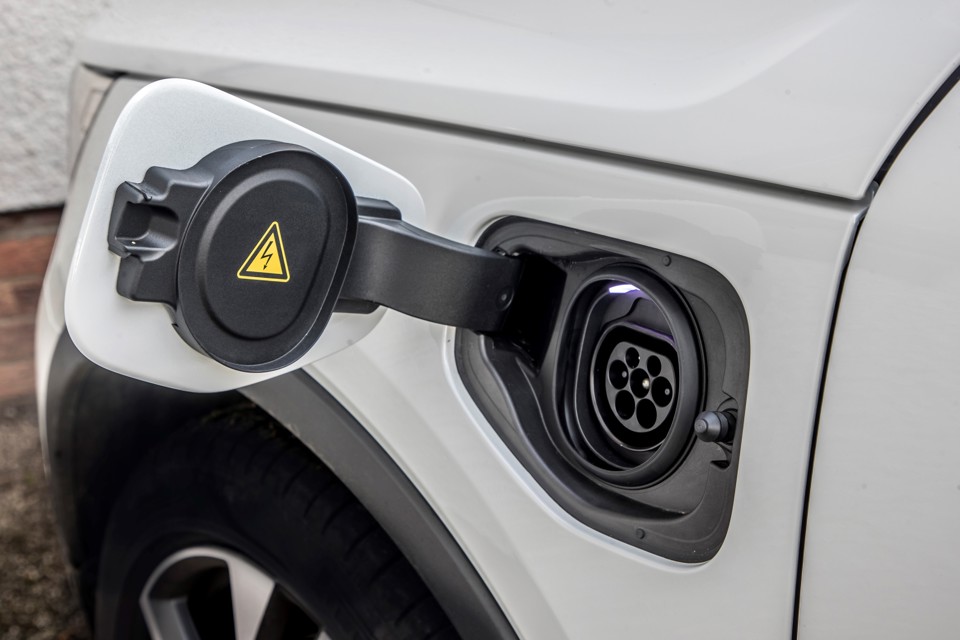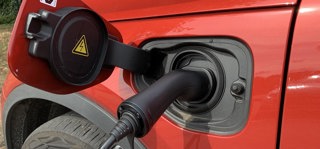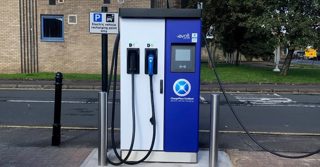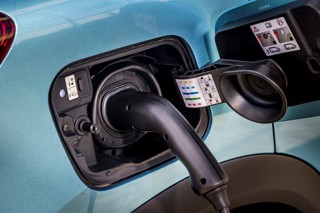The fleet, leasing and automotive industries have broadly welcomed proposals from the Government aimed at helping increase electric vehicle (EV) adoption rates.
The new Net Zero Strategy aims to dramatically reduce greenhouse gas emissions (GHG) to reach a target of net zero by 2050.
It includes commitments around transport, including a zero-emission vehicle (ZEV) mandate, which it says will help deliver on the Government’s 2030 commitment to end the sale of new petrol and diesel cars, and 2035 commitment that all cars must be fully zero emissions capable.
Furthermore, it says that ministers will earmark a further £620 million for zero emission vehicle grants and EV infrastructure, including funding for local EV infrastructure, with a focus on local on street residential charging.
Read more about the Government’s net zero strategy
David Bushnell, principal consultant at Alphabet (GB), said: “While the Government’s Net Zero Strategy is a welcome step in the right direction, the fleet industry needs certainty, not further consultancy.
"Concrete future tax rates for company cars are needed now to empower decision makers to make the change to electric with confidence, and not be hit down the line by a jump in taxation.
"Not only does this support fleet buyers with future planning, particularly those currently locked in to petrol or diesel fleet contracts, but it also helps increase company car drivers, preventing people opting for cash. This is essential to feed the used car market and ease drivers leasing their own cars which may not be carbon efficient.
"As the biggest buyers of electric vehicles, tax certainty is crucial for the fleet industry, and it’s this that will be the driving factor to the success of electrifying our roads.”
Alfonso Martinez, managing director at LeasePlan UK, said: “If we are to demonstrate global leadership in combating climate change and deliver a green recovery from the pandemic, we need to develop a resilient UK supply chain for all zero emission vehicles, including cars, vans and trucks.
“The zero-emission vehicle (ZEV) mandate policy is welcome news – as it goes some way to address the issue around the supply of zero emission vehicles.
“Existing supply issues have been further compounded by the current semiconductor shortage, which is causing back-ups in the supply chain across the country. These delayed vehicles could be on our roads today, replacing petrol and diesel cars and vans with zero-emission alternatives and helping to clean the air.
“We support the Government’s long-standing commitment to vehicle emissions regulations, and we expect to see targets ambitious as existing arrangements – particularly by ensuring that manufacturers will continue to supply the UK with electric cars and vans. But we must ensure that this mandate does not result in further red tape.
“While infrastructure is improving, it still isn’t where it needs to be to support EV uptake en-masse. Grants have been pared back, vehicle supply is constrained, and drivers need visibility on future tax bills. So, it must be simple for manufacturers to supply the UK with zero emissions vehicles if we are able to lead the global charge towards cleaner air. Simply put, we need to move further, faster.”
RAC head of policy Nicholas Lyes said: “Despite a depressed overall new car market, the growth in the uptake of electric vehicles is impressive, but that doesn’t mean that incentives to get more people to go electric should stop.
“Making EVs more affordable for the majority of UK drivers – and thus kick-starting mass EV adoption – starts with enough new vehicles being sold in the first place, so continuing the plug-in car grant and ensuring charging infrastructure is the very best it can be are both vitally important.
“But the switch to Net Zero may also affect drivers in other ways. The suggestion that road vehicle occupancy needs to increase by 2030 could be a tough message to sell to drivers, especially in light of the coronavirus.
“A focus on encouraging drivers to combine journeys, and investigate alternatives for their shortest trips, might be a more straightforward path to follow.”
Tanya Sinclair, policy director for the UK & Ireland at ChargePoint, said: “ChargePoint welcomes the government’s bold step towards transport decarbonisation by announcing the introduction of a ZEV mandate today, the first commitment of its type in Europe.
“We have seen the positive impacts on EV uptake of these schemes in North America, where they have significantly built-up availability and consumer confidence of electric vehicles.
“Across our fast-growing charging sector, a UK ZEV mandate will create huge confidence for those operating and investing in the charging industry. This industry - consisting mainly of startups and scale ups - will for the first time be able to clearly anticipate demand for charging infrastructure and create a clear roadmap to meet these targets.
“With this new policy, the UK is taking an essential step on the road to 2030 as well as contributing to the creation of a better EV driver experience in the UK.”
Helen Clarkson, CEO of the international non-profit Climate Group, said: “Alongside more than 30 leading UK businesses in the UK Electric Fleets Coalition, we’ve been calling for the government to adopt a zero-emission vehicle (ZEV) mandate to offer clarity and certainty to businesses as they adopt EVs across their fleets.
“We welcome the UK government’s decision to implement a ZEV mandate as part of its Net Zero Review.
“With lack of vehicle supply one of the key barriers to EV uptake for fleet operators, a ZEV mandate will be crucial to accelerate the development and release of new electric vehicles.
“This measure will also help to make EVs more accessible and affordable for individuals in the coming years, as cars bought by businesses today will form the basis for the second-hand market of tomorrow.
“We will look for further details on the policy during the consultation period in 2022, but ahead of COP26, it’s important to see the UK government showing leadership on clean road transport.”
Openreach CEO, Clive Selley said: “We’re committed to doing our bit to tackle climate change and reducing our operational impact.
“With more than 27,000 vehicles, we operate the second largest commercial van fleet in the UK, and we’re aiming to make the transition to electric by 2030.
“We want to lead the charge towards creating a green fleet so the introduction of a zero emissions vehicle (ZEV) mandate – announced today – is a positive step to ensure the increase of the supply of electric vehicles which is crucial if we’re to reach our target.”
Peter Jelkeby, country retail manager and chief sustainability officer at IKEA UK and Ireland, said: “At IKEA we’re committed to assembling a better future for the planet we all call home and limiting the impact of climate change, so we welcome the UK Government’s announcement of a ZEV mandate today, which we believe is crucial for ensuring the transition to a net zero economy and the mass uptake of sustainable transport.”
Lucy Simpson, head of EV enablement at Centrica Business Solutions, said: “As an organisation that is supporting the transition to electrified transport for our customers, as well as delivering on our own commitment to a fully electrified fleet by 2025, implementation of a ZEV mandate has the potential to drive a gear-change in uptake, and reinforce the UK’s place as a climate leader.
“In the countdown to COP26, this is an important step towards delivering a cleaner transport network that’s both affordable and convenient for consumers.”
Gerry Keaney, chief executive of the British Vehicle Rental and Leasing Association (BVRLA), said: “This is uncharted territory for the automotive industry, and it is vital that any future ZEV mandate includes a review mechanism to assess potential market failures. The mandate must also take account of the very different uptake trajectories seen between cars and vans.
“We hope that next week’s Budget will see the Government commit to providing long-term financial support and tax incentives that will accelerate the roll-out of public and private charging infrastructure and absorb the price premium that many prospective electric vehicle users are still faced with.”
Mike Hawes, chief executive of the Society of Motor Manufacturers and Traders (SMMT), said: “A well-designed, flexible regulatory framework could help maintain or even increase this pace to ensure we deliver on our shared decarbonisation ambitions.”
He continued: “To ensure we have the reliable, accessible and nationwide charge point network this transition needs, however, requires a similar regulatory approach.
“The announcement of additional funds for on-street residential charging must energise much-needed private sector investment but consumers will only have confidence in the future if there are commensurate and binding requirements on the infrastructure sector.
“Combining regulatory commitments with financial ones is the key to a successful transition to zero-emission road transport.”
Paul Willcox, managing director of Vauxhall, also welcomed the ZEV mandate plan, which he says will provide clarity to the UK motor industry.
He said: “Vauxhall believes a ZEV mandate can work in the UK provided there are complimentary targets on the other key parts of the electric vehicle ecosystem which are key to driving Britain to a more sustainable transport infrastructure.
“With our Ellesmere Port plant set to become the first electric vehicle only factory within the Stellantis group, we look forward to working with the Government on the detail of how a ZEV mandate can be implemented and help support a sustainable vehicle marketplace in the UK.”
Greg Archer, UK director of Transport & Environment (T&E), said: “The ZEV Mandate provides the certainty industry needs about how many electric vehicles will be on the UK’s roads in coming years. It enables much better planning for the shift and much lower CO2 emissions.
"In parts of the UK, nearly one in four new cars sold is now battery electric. The revolution is underway and these proposals will help to ensure there are only sales of only zero emission vehicles by 2035, allowing businesses to recruit and train the green workforce of the future.”
T&E also welcomed the proposed backstop CO2 regulation that will ensure conventional new cars do not become less efficient as a result of the introduction of the ZEV Mandate. This will ensure there is no incentive for carmakers to sell more hybrids and plug-in hybrids that cannibalise the market for battery electric cars whilst offering only modest CO2 savings, it said.
Arturs Smilkstins, partner at Boston Consulting Group, said: “We predict that by 2026, electric vehicles will account for more than half of light vehicles sold globally, which is why investment in public charging infrastructure is critical to ensuring that EV adoption remains high.
“One-hundred million additional charge points will be required globally in the next decade to keep pace with projected EV growth. If these ambitions aren’t met, the EV market could be brought to a standstill.”
Patrick Reich, co-founder of Bonnet, an electric charging platform, said: “Focusing on public charging infrastructure investment and pushing carmakers to sell a certain proportion of EVs every year will help make the country’s transition to these green clean vehicles a reality.
“Public charging provision is one of the tallest hurdles to climb before the 2030 ICE ban. Around 40% of households don’t have a private driveway, meaning they would rely on public charge points to be able to charge and drive. Investing in this infrastructure is vital, while also making sure charge point providers make it as simple and reliable for drivers to use their service.
“This investment is a great step towards making sure charging anxiety for drivers making the switch to EVs reduces. Through investment and a use of innovative technology, consumers will feel comfortable in making this switch.”
























Login to comment
Comments
No comments have been made yet.